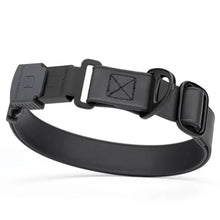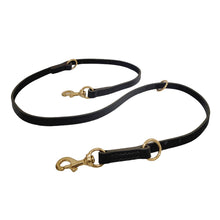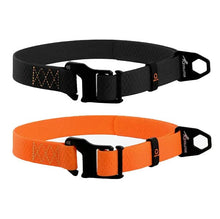Winter Grooming Tips: Keeping Your Dog Clean and Healthy All Season Long

Most German shepherds love the cold weather and enjoy being active outdoors during the winter season. Thanks to their thick double coat, they usually tolerate cooler temperatures well.
By keeping them well-groomed, you can help protect their skin and coat when the temperatures fall, which will keep them healthy, happy, and playful all winter long.
But being outdoors in the cold isn’t the only thing that can stress their skin. The heater running indoors is also very drying and can contribute to dry, flakey, itchy skin.
To help keep your dog clean and healthy during the wintertime, here are some of our best tips:

Brush Often
Keeping your double-coated dog brushed is a year-round job but it’s just as important in winter as it is in summer. To help keep their fur free from leaves, twigs, mats, tangles, and reduce shedding, give them a good once over with a de-shedding brush about once a week. Using a slicker brush afterward will help remove any remaining loose fur. This will also help you keep your house clean and make it easier for your dog to dry completely, should they get wet.
Hygiene Clips
German shepherds don’t require much more grooming than the occasional bath and regular brushing. However, it can be helpful to keep the longer fur on their paws and the openings of their ears trimmed, so they stay clean and free from ice. Since they aren’t usually bathed as often in winter, by giving them a hygiene or sanitary trim, you can help keep them clean and fresh longer. Never trim or shave your dog’s double coat, they need it for insulation during the summer and winter.
Nail Trims
Be sure that your dog’s nails stay trimmed in the winter when they may use their paws to grip slippery surfaces, such as ice and snow. If you’re not comfortable with a nail trimmer, try using a grinding tool, which can help keep nails filed down without the risk of cutting the quick. A grinding tool can also help make nail trims quick and easy for both of you.

Paw Protection
Depending on where you live, it might be a good idea to invest in paw protection for your dog. Shoes and booties can help protect your dog’s paws from snow, ice, and sharp objects while outdoors. Non-slip socks can help senior and disabled dogs be sure-footed on hard floors, especially when there is more moisture around.
Protecting their paws from salt and chemicals is also important. If you don’t use booties, be sure to clean your dog’s paws if they’ve been any place where they could have picked up salt, ice melts, litter, antifreeze, chemicals, and more.
Warm Bath
If you have to bathe your shepherd when it’s cold out, be sure to use a moisturizing shampoo and conditioner that won’t strip their skin and fur of natural oils. Since their skin is usually drier in winter, you’ll want to use a product that is pH-balanced to preserve their natural skin barrier as much as possible to prevent itching, flakes, and discomfort. Be sure to only bathe them when you have time to dry them completely before they have to go outside in chilly weather.
 Omega 3 Supplementation
Omega 3 Supplementation
You may not think of supplements as part of your grooming routine but supplementing your dog’s diet with an omega 3 can help protect the skin and coat and reduce dryness. Another benefit is, that omega 3 helps reduce inflammation and can help relieve stiff joints and improve mobility, which is very important for senior or disabled pets, especially when it’s cold outside.
Food and Water
By feeding your dog a nutritious diet appropriate for their age and activity level, you will provide them with the nutrients that they need to stay healthy and have a strong immune system during the winter. A food that offers skin support can be beneficial when the humidity is low, and the heater is running more often. Fresh water will help keep them hydrated, which is also very important when it’s cold outside and dry inside.
Check Skin and Paws Often
German shepherds love to get wild and play in the cold. So, it’s always a good idea to check their skin, paws, and nails after they spend time outside. Watch for chapped skin on their paws and nose as well as cuts and irritation. A paw balm and nose balm can help prevent chapping as well as make a barrier to the elements. Your dog’s wintertime first aid kit should contain blood stop, bandages, wound cleaner, hot spot treatment, nail clippers, scissors, vet wrap, thermometer, water for cleansing wounds, phone number for the nearest emergency vet, and Pet Poison Control, leave-in conditioner for over-dry skin, and medications.

Humidify the Air
A humidifier can help add moisture back into your home to help keep you and your pup’s fragile skin more comfortable. Using a humidifier to add moisture back into the indoor air may help to reduce dry, cracked, and itchy skin. The key to healthy humidifier use is to keep the humidifier clean and be sure not to add too much moisture back into the environment, which can cause mold.
We hope these tips help you keep your dog clean and healthy all winter long. Please be sure to share with your friends.
You might also like: Winterizing Your Dog: Tips for a Safe and Cozy Season






















